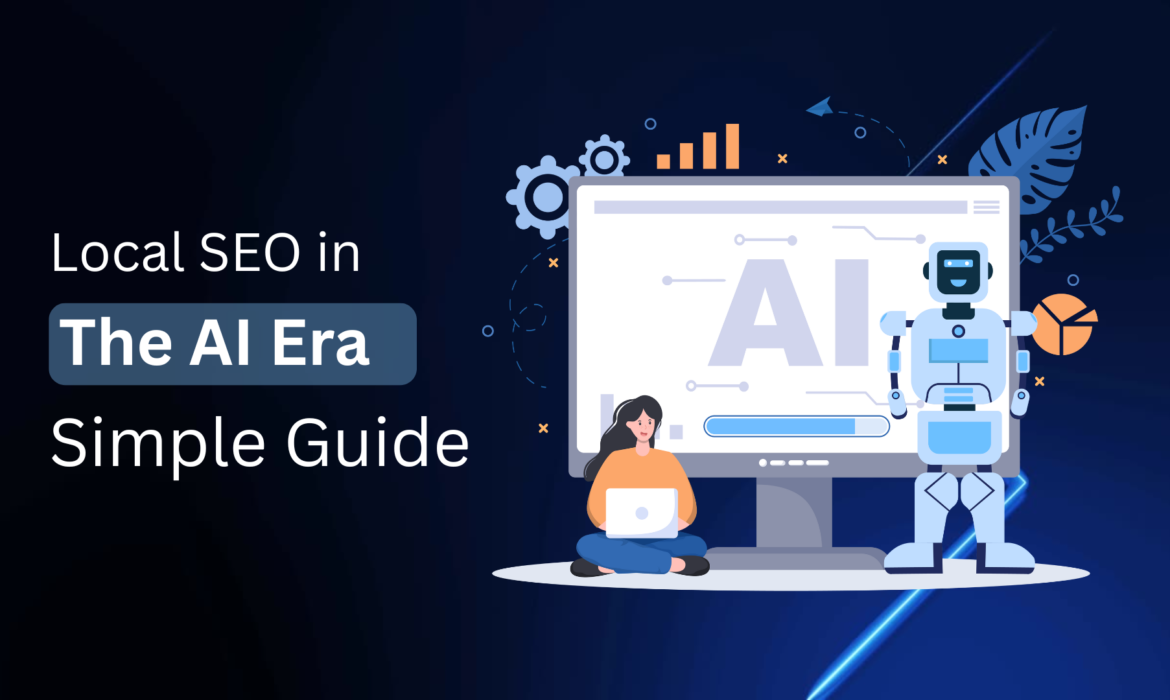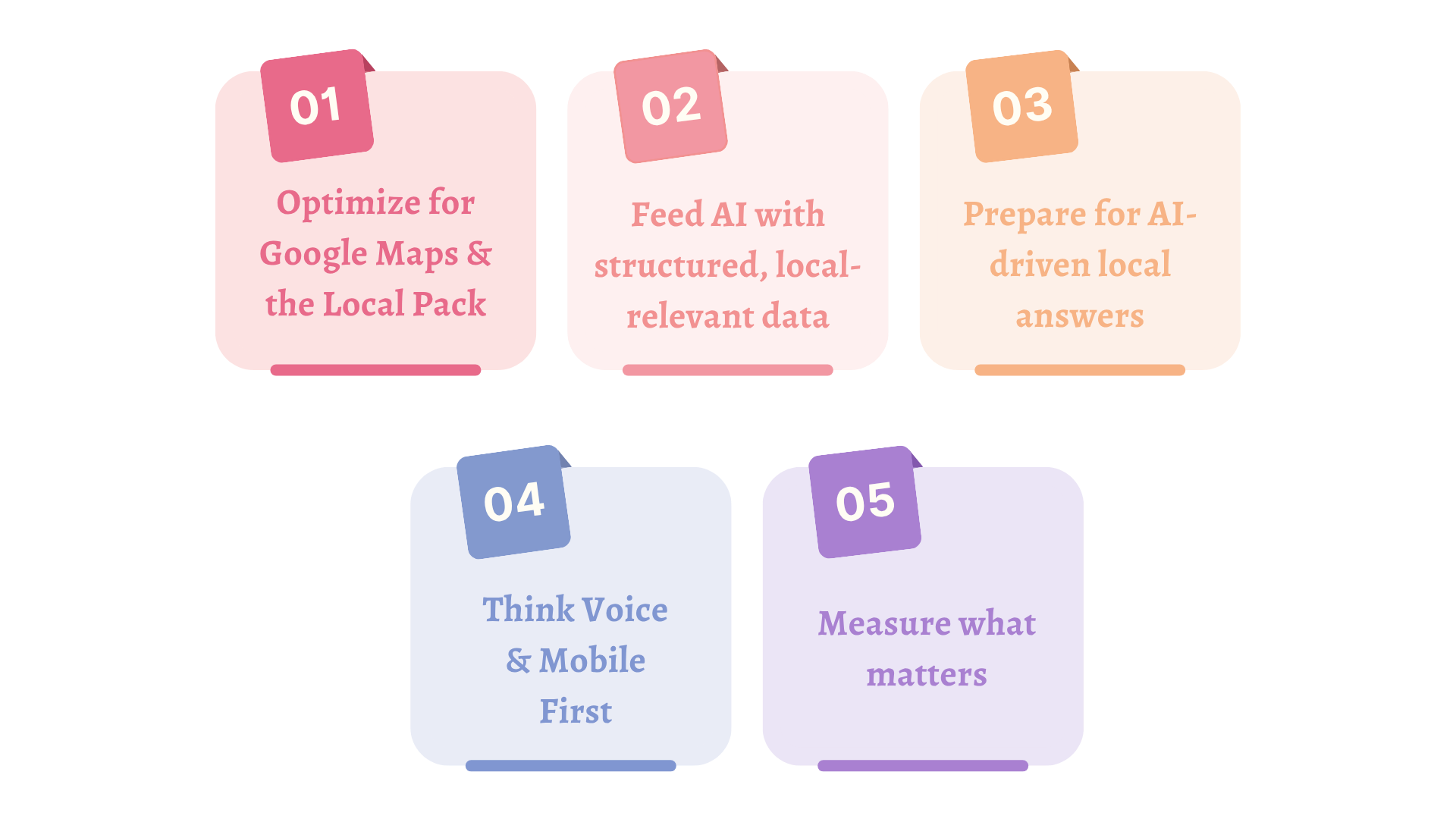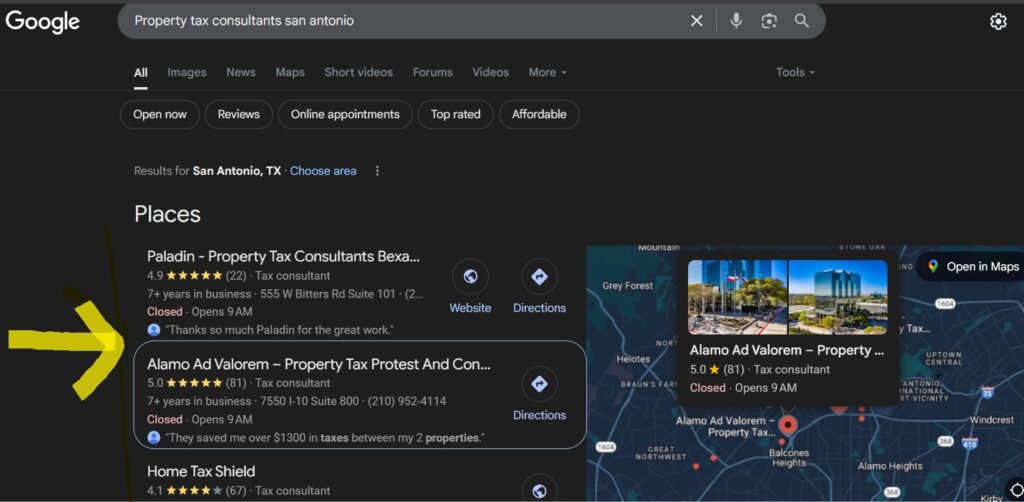Local SEO in the AI Era: A Simple Guide for Small Businesses

Table of Contents
ToggleToday’s search experience is powered more and more by AI tools like ChatGPT and Google AI overviews, which deliver quick, summarized answers right on the results page. As a specialized SEO company for small businesses, we’ve noticed that this shift has led many business owners to worry that local SEO is losing its impact or becoming obsolete.
That said, the truth of the matter is that Local SEO is not dead; it’s evolving! Thus, for staying visible, it is important for businesses to understand how AI is reshaping discovery and how to adapt strategies that go beyond the basics.
In this guide, we’ll cover how to make sure your business ranks for local searches in local packs (3-pack) , Google Maps, and on AI platforms like ChatGPT.
Why Local SEO is still critical (but now more complex)
Even with AI tools like ChatGPT and Google’s AI Overviews giving people quick answers, local searches like “near me” or voice searches on mobile are still very common. People still need nearby services, whether it’s a dentist, coffee shop, or plumber.
What has changed is how they find those services. Thus, the important question now is:
Not just…. “Is my business showing up in search?”
But…. “Is AI picking my business as the answer?”
That’s why for an effective local SEO strategy businesses need to focus on what AI tools are looking for: clear info, strong reviews, and local relevance. At Growth Accelerators, we have years of experience in local SEO outsourcing services and have very closely monitored and adapted our strategies inline with the change in the search landscape. If you are looking for a reliable SEO partner.
Effective Steps for Local SEO for AI platforms

1. Optimize for Google Maps & the Local Pack
These are still the primary surfaces for local visibility. AI tools including Google AI overviews (formerly SGE) pulls information from Google map listings when answering local queries.

Action Checklist:
- Claim and verify your Google Business Profile (GBP): Ensure accurate NAP (Name, Address, Phone) info across the web.
- Use all GBP features: Add services, products, hours, images, and posts. The richer your listing, the more AI can “understand.”
- Get and respond to reviews: Reviews influence both rankings and AI-generated sentiment summaries.
2. Feed AI with structured, local-relevant data
AI-generated results rely on structured data and credible sources. Ensure AI understands your business’ local intent.
Key Strategies:
- Add Local Business schema to your site: Use JSON-LD markup to clarify name, location, opening hours, reviews, and social links.
- Use location-specific landing pages: If you serve multiple cities or neighborhoods, create optimized pages with unique content.
- Embed maps & driving directions: These signals reinforce relevance for local search terms and help with voice-based answers.
3. Prepare for AI-driven local answers
Google AI Overviews and ChatGPT may answer questions like:
“Best Thai restaurants in Phuket open late”
These AI platforms will consider the top-rated businesses, review sentiment, opening hours, and proximity, and then share a summarized answer directly and may often not show a link.
To Get Picked by AI:
- Earn consistent 4.5+ star ratings: Review volume, credible platform and recency matter too.
- Optimize for long-tail “near me” queries: E.g., “24-hour HVAC repair in Plano” should have a dedicated page or section.
- Build topical authority locally: Blog about community events, share tips relevant to your location, and earn backlinks from local directories, news, or partners.
Seeking more details about how to rank on the Answer Engines or AI tools
4. Think Voice & Mobile First
AI assistants like Siri, Alexa, and Google Assistant rely on local knowledge graphs and accurate listings. Voice searches are often local by default.
Get Ready for Voice:
- Use conversational phrases in content: Think FAQs like “Where can I get vegan tacos in Cincinnati?”
- Ensure your mobile UX is fast & simple: Voice searches often result in direct clicks, your site should load in under 2 seconds.
- Submit to all major local directories: Yelp, Bing Places, Apple Maps, TripAdvisor, all feed into AI sources.
5. Measure what matters
Traditional click-throughs may drop as zero-click and AI answers rise. Instead of focusing only on traffic, track visibility and engagement metrics:
- Impressions in Google Business Profile insights
- Calls, direction requests, and reviews
- Rank tracking for local keywords
- Mentions in AI tools like Perplexity or ChatGPT (via manual testing)
AI isn’t killing local SEO, it’s just raising the bar
You’re now optimizing for both humans and Answer engines. Local businesses that show up well in reviews, maps, and voice results will dominate AI-driven searches.
But succeeding in this environment takes more than just good content or keywords. It takes a local SEO partner who understands how AI tools fetch, filter, and feature business information and adapt your strategy accordingly.
At Growth Accelerators, we’ve proudly become one of the most trusted SEO outsourcing companies in India by doing exactly that. Our focus has always been on driving real growth for our clients and building visibility where it truly matters and staying ahead of every shift in the search landscape.
Discuss how we can help your business stay visible and competitive in the AI age.
Author
-

An experienced content strategist with a deep understanding of the digital marketing landscape. Shweta combines data-driven insights with creative storytelling to craft engaging and informative content.
View all posts


